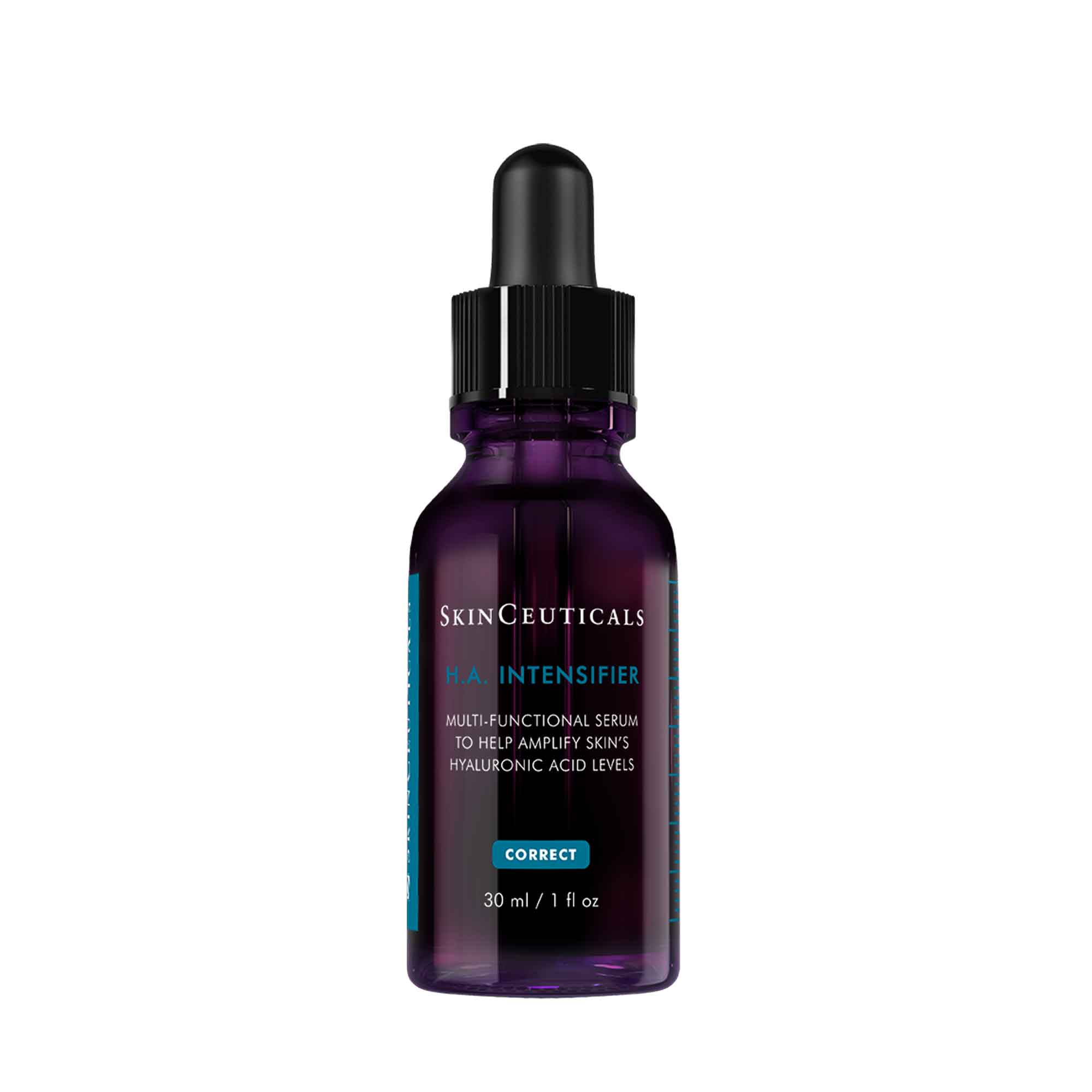Free Shipping Over $100
Free Samples With Every Purchase
Auto Replenishment Available
Authorized Reseller
What Is Hyaluronic Acid?

When it comes to skincare routines, hyaluronic acid should be a go-to for just about anyone of any age or skin type. Whatever your skin health goals, hyaluronic acid can help you reach them. Seriously, it’s great stuff. If you’re like the majority of people, you’ve probably heard that hyaluronic acid is good for your skin, but that doesn’t mean you know what it is, why you need it, or how to use it to maximum effect. Luckily, we’ve got you covered. In this blog, we’ll explore exactly what hyaluronic acid is, how it works, the benefits, and more. Ready to add hyaluronic acid to your skincare routine? Check out our dermatologist-recommended hyaluronic acid product.
So, What Is Hyaluronic Acid? 
Hyaluronic acid is a sugar molecule that is naturally produced in the body. You’ll find the highest levels in areas like the knees and elbows where it is hard at work keeping the joints lubricated, so they move easily and without pain. On the skin, hyaluronic acid attracts moisture and binds water to collagen. This helps to keep skin cells hydrated, which means your skin looks and feels healthier and more supple. While hyaluronic acid is naturally found in human bodies, store-bought varieties are typically derived from animal byproducts. However, hyaluronic acid can also be produced in a lab using bacteria, so if you are vegan or prefer non-animal-based products, your dermatologist can help you find cruelty-free hyaluronic acid products.
How Does Hyaluronic Acid Work?
As we get older, our skin produces less collagen and elastin (the proteins that give skin a full, plump, youthful appearance) and becomes dehydrated more easily. When applied to the skin, hyaluronic acid helps to attract and retain moisture and counteract these effects of aging. In addition to fighting against the signs of aging, hyaluronic acid also helps to prevent the drying effects of cold weather, wind, sunlight, and other harsh environmental irritants.
The chemical process itself is a little complicated, but essentially, hyaluronic acid works as a humectant (it attracts moisture) that binds naturally with collagen. When applied to the skin, hyaluronic acid is easily absorbed (this is not the case with some other humectants). It penetrates into the skin, attracting moisture and binding it with collagen. This helps to prevent dehydration as well as slowing collagen loss. This keeps skin looking plump and dewy and has even been shown to help improve the appearance of fine lines and wrinkles. It really is a powerhouse skincare product.
What Are the Benefits of Hyaluronic Acid in Skincare Routines?
 We’ve already talked about some of these benefits, but a few of the many reasons you should be including hyaluronic acid in your skincare routine include:
We’ve already talked about some of these benefits, but a few of the many reasons you should be including hyaluronic acid in your skincare routine include:
- Ultimate hydration – Hyaluronic acid is a must for anyone, especially individuals with dry skin. It will help you retain moisture and prevent dryness.
- Repair the lipid barrier – Hyaluronic acid helps to repair the skin’s lipid barrier. This is the part of the epidermis (the exterior layer of our skin) that traps in moisture and protects skin from external irritants. When the lipid barrier is broken down due to aging, UV exposure, or other damage, hyaluronic acid helps to repair the barrier and fortify skin.
- Reduced inflammation & irritation – Because hyaluronic acid increases hydration and strengthens the skin’s lipid barrier, you’re less likely to experience inflammation and irritation, leading to healthier, more resilient skin.
- Tighter skin – Because hyaluronic acid bonds to collagen, the skin retains collagen longer, meaning your skin is tighter and smoother.
- Less noticeable signs of aging – Hyaluronic acid use can’t completely reverse signs of aging, but it can prevent the formation of some fine lines and wrinkles. The plumping effects can also make existing fine lines and wrinkles less noticeable.
- Improved skin texture – Another side effect of increased moisture and greater collagen retention is an even skin texture. If you have rough or bumpy skin patches or light scarring, hyaluronic acid can help to smooth and soften these areas.
- Even skin tone – Healthy, well-moisturized skin just looks better. Regular use of hyaluronic acid has been shown to help maintain an even skin tone and reduce the risk for hyperpigmentation and other concerns related to skin tone.
- Skin cell turnover – Hyaluronic acid doesn’t actually promote skin cell turnover (there are plenty of products that do – ask your dermatologist for recommendations). However, it does improve overall skin health, which means your body will naturally shed dead skin cells and replace them with healthy, new skin more quickly.
How & When Should I Apply Hyaluronic Acid During My Skincare Routine? 
When it comes to skincare, most products require a delicate balance. You want to use the right amount at the right time to achieve your desired results. With hyaluronic acid, there’s essentially no such thing as too much of this good thing. Because it’s so easily absorbed and your body uses it so well, hyaluronic acid is almost always beneficial. Whether you choose to use a facial moisturizer that already contains hyaluronic acid or you add a more concentrated hyaluronic acid serum to your morning and evening skincare routine, you’ll see great results.
If you’re using a hyaluronic acid moisturizer, apply these products at the end of your morning and night routine, as usual. If you’re adding a hyaluronic acid serum, you will usually want to apply those after cleansing and before moisturizing. With some serums and treatments, you’ll want to wait several minutes before applying your moisturizer to allow for full absorption, but most hyaluronic acid treatments absorb very quickly. Check the directions on your product first, but in most cases, you can apply moisturizer directly over the top of your hyaluronic acid serum.
Are There Any Reasons I Shouldn’t Use Hyaluronic Acid?
Hyaluronic acid products are safe and effective for almost anyone. If you have a chronic skin condition, very sensitive skin, or experience allergic reactions after use, you should consult your dermatologist.
Want a Professional Opinion?
If you want to find out more about how to incorporate hyaluronic acid into your skincare routine to achieve your specific goals, we hope you’ll reach out to U.S. Dermatology Partners. Our knowledgeable dermatologists, who curated our list of available hyaluronic acid products, can help you understand the myriad benefits of using hyaluronic acid and explore any of the other skincare treatments you’re curious about.










